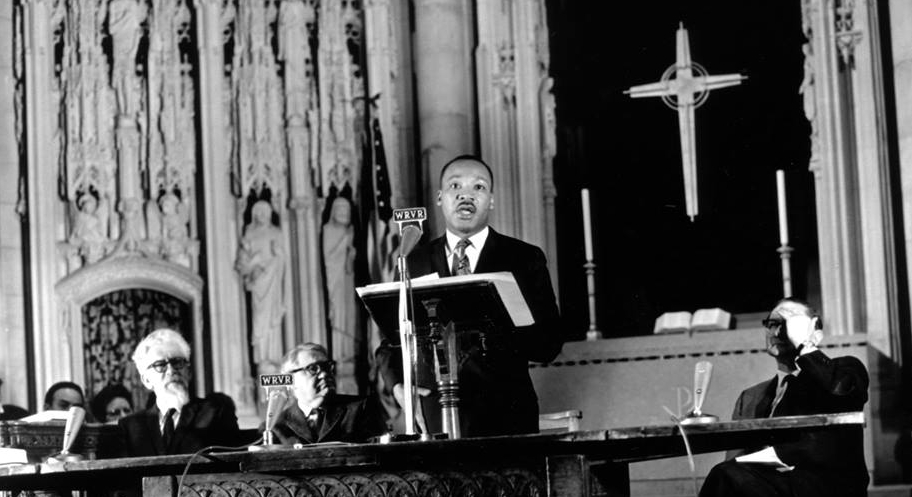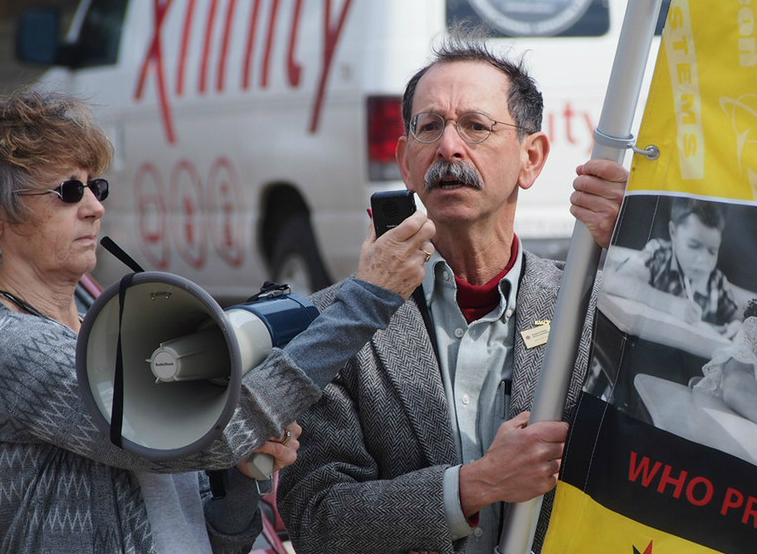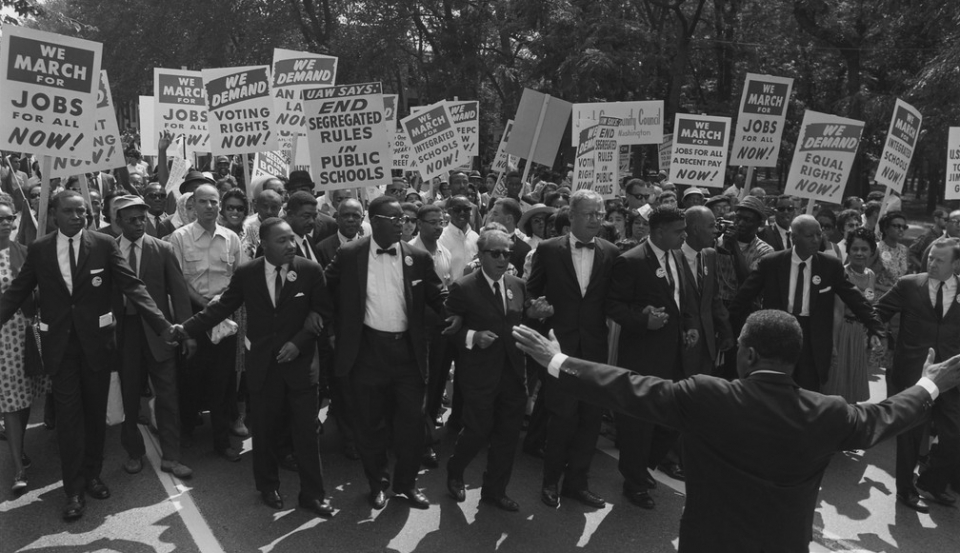
Rev. Dr. Martin Luther King Jr. delivers his "Beyond Vietnam" speech at the Riverside Church in New York. Photo: Public domain Archives / AFSC
An interview with Arnie Alpert, co-director, AFSC New Hampshire program
Arnie Alpert has coordinated AFSC’s work in New Hampshire for over 30 years. In that time, he helped lead a decade-long campaign to make Martin Luther King, Jr.’s birthday a state holiday. We asked Arnie for his thoughts on how King’s words and actions resonate in struggles for justice today.
Q: King is considered the most important leader in the Civil Rights Movement, but you’ve written about the limits of this characterization.
 A: Of course he was a civil rights leader, but that label is overly restrictive. It diminishes the breadth of his vision, the scope of his leadership, and the broadly prophetic voice he had at that time.
A: Of course he was a civil rights leader, but that label is overly restrictive. It diminishes the breadth of his vision, the scope of his leadership, and the broadly prophetic voice he had at that time.
As far back as the Montgomery bus boycott in the 1950s, King talked consistently about "the triple evils" that stand in the way of creating the beloved community: racism, militarism, and economic injustice. He made connections between systems of institutionalized racism and reliance on militarism and violence to solve problems—as well as economic institutions that keep many in poverty and help the few amass tremendous wealth.
In his controversial speech at Riverside church, he called the U.S. “the greatest purveyor of violence in the world today.” In a sense he was saying, how can we call nonviolence a preferred method of social struggle in the United States when the country is waging a brutal war abroad?
Q: Many criticized King’s antiwar stance, including civil rights activists. Why did he publicly oppose the war when it jeopardized the movement for civil rights by alienating potential allies?
A: A number of reasons. One, funding for the war on poverty and the Great Society programs, which were direct results of civil rights agitation around the country, was being threatened by the demands of the war. Second, as a Christian minister and Nobel Peace Prize winner, he saw it was his role to speak out against violence, especially violence committed by his own government. Third, King had studied the history of Vietnam, and he knew the U.S. should be siding with anti-colonial struggles.
Fourth, he connected these issues to what he called a “deeper malady within the American spirit.” He knew that if there was no change in U.S. foreign policy, we would be marching and attending antiwar rallies with no end. Which is exactly where we are today.
Q: What should activists hold in mind as we think about King’s legacy today?

A: King was a brilliant orator, but it’s important to recognize he was a strategist, organizer, activist, and lobbyist. He focused energy on applying nonviolent direct action to win specific demands and put pressure on the larger society for bigger change.
Now is a good time to go back to “Letter from a Birmingham Jail ,” which King wrote in response to liberal white clergy who told Civil Rights leaders they were demanding change too fast. It’s not unlike the flak that the Black Lives Matter movement has gotten from liberals and centrists today.
King’s letter emphasized why oppressed people cannot let oppressors set the timeline for their own liberation and served as a blueprint for how a nonviolent campaign develops—researching the issue, spiritual preparation, negotiating with your adversaries, and, if necessary, taking nonviolent direction with the aim being the creation of the beloved community, not the defeat of your enemy.
This is the stuff we need right now. We don’t know what we will be facing over the next few years. But if we have Dr. King and others like him as teachers and models—as prophets for activism, love, and nonviolence; prophets for a world free from of war, racism, and poverty—we’ll be able to find ways to bring about the changes we need.
More:
- Video: Arnie Alpert describes the years-long campaign to make Martin Luther King, Jr.'s birthday a state holiday in New Hampshire (starts at 1:05).
- Letter from Birmingham City Jail: What would King say today?
- From India to Birmingham: Martin Luther King, Jr.'s connections with AFSC